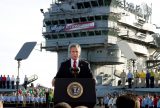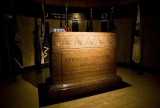My Hometown’s Rush to Honor Obama Says More About Us Than Him
We're Fawning Over the Outgoing President—But the Feeling Isn't Mutual
I recently learned that, in the second grade, I was part of presidential history.
Every morning during the 1980-1981 school year, I walked the five blocks between my family’s home in southwest Pasadena and Allendale Elementary School, where I was in Beverly Thomas’ class. Sometimes I went back in the evening to play in the Little League at Allendale Park, adjacent to school.
The round trip seemed unremarkable then, as I passed homes and dumpy apartment buildings. But just last month, my hometown of Pasadena announced that my path had crossed with …









